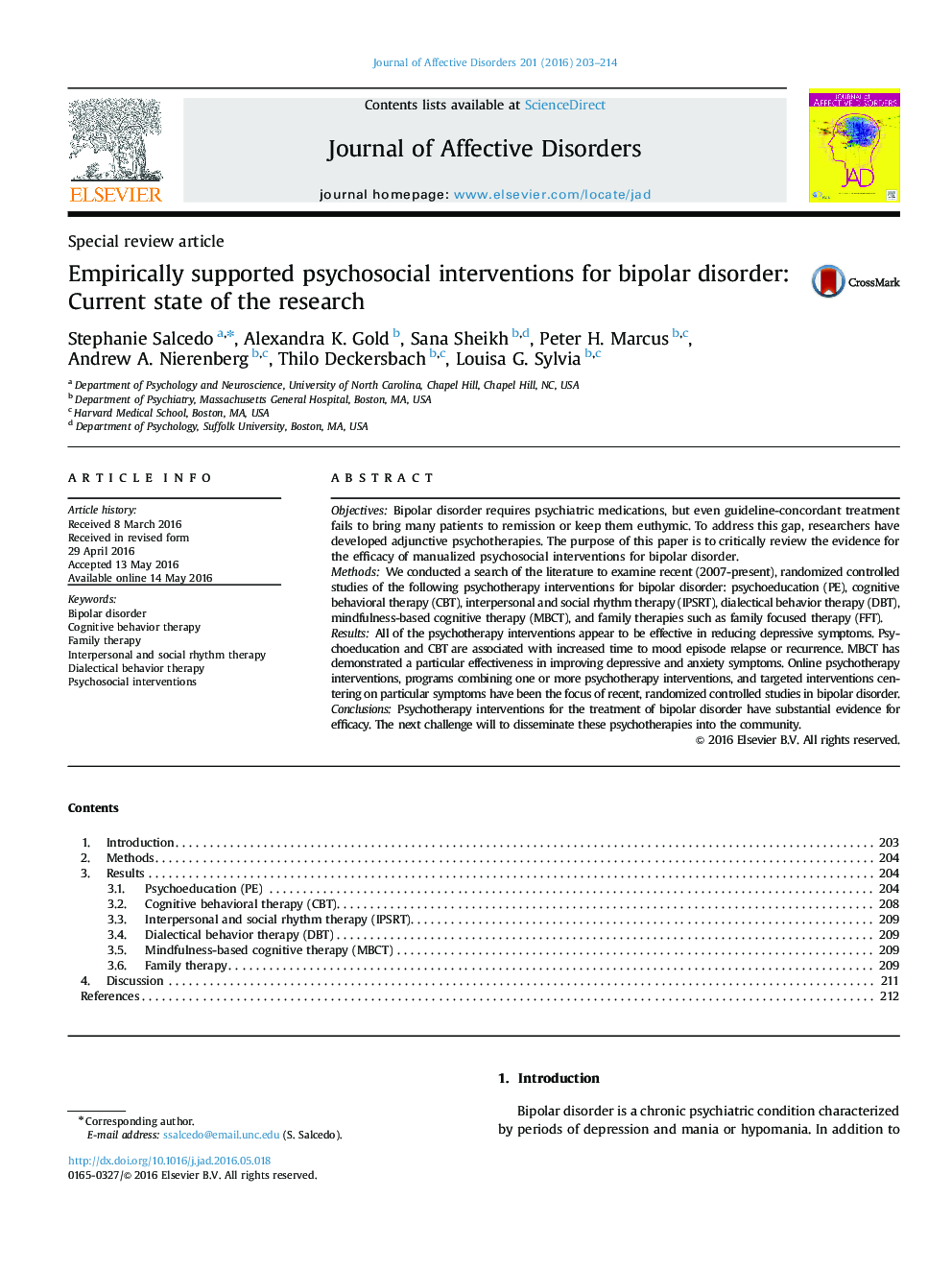| کد مقاله | کد نشریه | سال انتشار | مقاله انگلیسی | نسخه تمام متن |
|---|---|---|---|---|
| 6230041 | 1608124 | 2016 | 12 صفحه PDF | دانلود رایگان |
- We reviewed the evidence for manualized psychosocial interventions for bipolar disorder.
- All the psychotherapy interventions reviewed showed evidence of reducing depressive symptoms.
- Given their effectiveness, future research should examine dissemination of these interventions into the community.
ObjectivesBipolar disorder requires psychiatric medications, but even guideline-concordant treatment fails to bring many patients to remission or keep them euthymic. To address this gap, researchers have developed adjunctive psychotherapies. The purpose of this paper is to critically review the evidence for the efficacy of manualized psychosocial interventions for bipolar disorder.MethodsWe conducted a search of the literature to examine recent (2007-present), randomized controlled studies of the following psychotherapy interventions for bipolar disorder: psychoeducation (PE), cognitive behavioral therapy (CBT), interpersonal and social rhythm therapy (IPSRT), dialectical behavior therapy (DBT), mindfulness-based cognitive therapy (MBCT), and family therapies such as family focused therapy (FFT).ResultsAll of the psychotherapy interventions appear to be effective in reducing depressive symptoms. Psychoeducation and CBT are associated with increased time to mood episode relapse or recurrence. MBCT has demonstrated a particular effectiveness in improving depressive and anxiety symptoms. Online psychotherapy interventions, programs combining one or more psychotherapy interventions, and targeted interventions centering on particular symptoms have been the focus of recent, randomized controlled studies in bipolar disorder.ConclusionsPsychotherapy interventions for the treatment of bipolar disorder have substantial evidence for efficacy. The next challenge will to disseminate these psychotherapies into the community.
Journal: Journal of Affective Disorders - Volume 201, 1 September 2016, Pages 203-214
